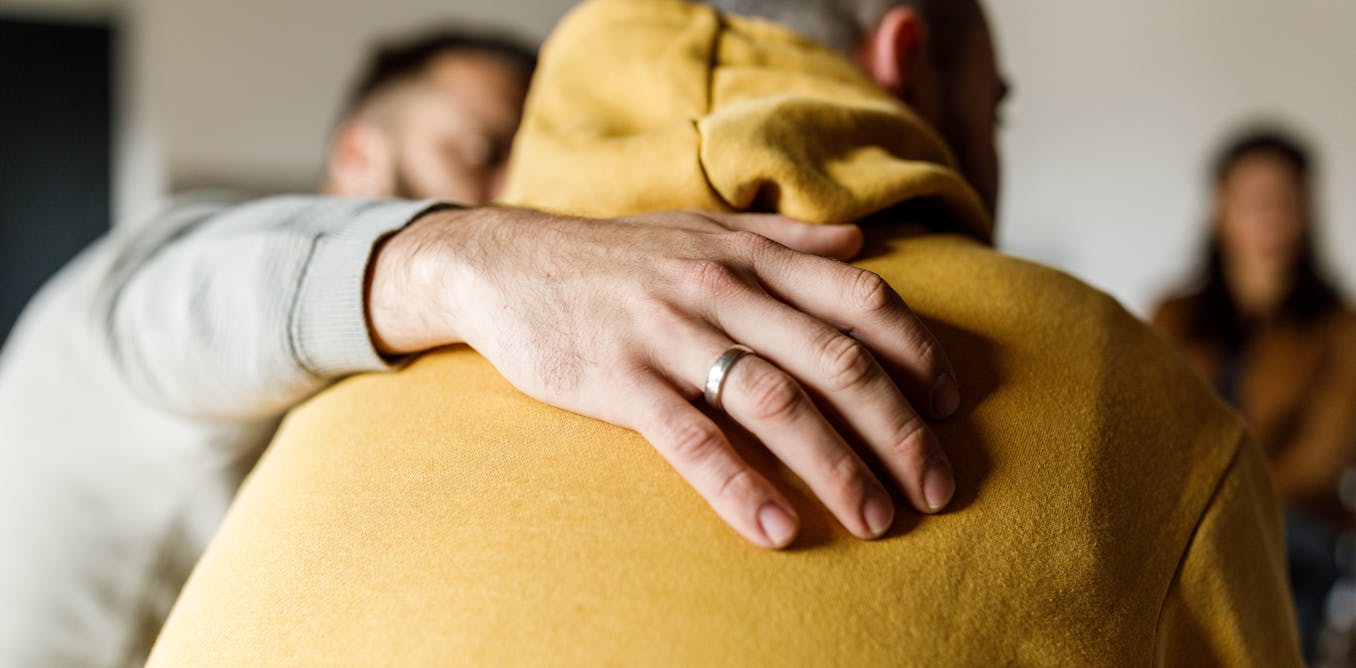
Providing safe smoking kits could reduce harm from meth use – but nz law won’t allow it
- Select a language for the TTS:
- UK English Female
- UK English Male
- US English Female
- US English Male
- Australian Female
- Australian Male
- Language selected: (auto detect) - EN
Play all audios:

Methamphetamine was recently ranked New Zealand’s second-most harmful drug behind alcohol, and is the country’s most injected drug. Injecting drugs is associated with additional risks such
as vein and soft tissue damage, bacterial infection and blood-borne virus transmission. Many of these harms have been reduced by the work of the national Needle Exchange Programme, which
provides sterile equipment and education to those who need it. Safer smoking kits – including high quality glass pipes, pipe tips and lip balm – would be a useful addition to extend the
programme’s harm-reduction efforts to people who smoke methamphetamine. But when it comes to assisting people who smoke methamphetamine, New Zealand offers very little. Currently, it is
illegal under the Misuse of Drugs Act 1975 to possess any utensils (other than needles or syringes and approved cannabis vaporisers) to take controlled drugs. This includes pipes that aren’t
for smoking tobacco. Possession can lead to a prison sentence (up to a year) and/or a fine of up to NZ$500. Supply can lead to three months in prison and/or a $1,000 fine. “Tobacco use
only” marketing provides a work-around for cannabis bongs. But this is generally not the case for methamphetamine pipes. While these pipes are available from some stores, people make their
own makeshift versions (for example from lightbulbs). This can lead to cuts, infections or the inhalation of potentially toxic fumes. ISSUES WITH THE LAW Back in 2011, the Law Commission
questioned the value of criminalising utensils, noting they do not really represent extra criminality given this lies with drug use itself. The commission also noted the maximum imprisonment
for utensil possession is larger than for possession of illicit drugs – a key concern reiterated by the New Zealand Drug Foundation in 2016. The criminalisation itself is based on two false
assumptions: that utensils facilitate use and are therefore harmful, and that preventing utensil possession prevents drug use. We know providing utensils such as needles and syringes can
reduce harms. We also know that historically, laws and policies to criminalise drug use or possession were rooted in racism and continue to harm people who use drugs. This includes fuelling
stigmatisation, which can act as a barrier for those seeking methamphetamine harm-reduction and treatment services. Although it is uncommon for people to be convicted of drug utensil
possession alone, the law currently prevents services from providing pipes for harm-reduction purposes. BENEFITS OF GIVING OUT METH PIPES There are several potential benefits to providing
pipes as part of safer smoking kits to people who use methamphetamine. Firstly, we know from international research that people who have trouble accessing pipes often inject instead. Those
who have access to pipes report injecting less often. Because the subjective effect of smoking versus injecting methamphetamine is similar, pipe access can help people move away from
injecting and reduce associated harms. Through legalisation, we could ensure higher quality borosilicate glass pipes are used in place of poor-quality materials or makeshift devices that may
be harmful to use or easily broken. The addition of silicone or rubber mouth pieces can also reduce germ transmission and minimise burns and cuts, without taking away social pipe use that
often accompanies methamphetamine smoking. Potentially the biggest benefit is increasing contact with harm-reduction services. By allowing services to give out kits with pipes, there would
be more opportunities for health and social assistance, education and connection with community. Given the cost-effectiveness of the needle exchange programme, it is likely that expanding
our harm-reduction efforts to include safer smoking kits would further decrease health and legal costs and associated consequences. Interest in obtaining safer smoking kits has been shown
overseas and is likely similar in New Zealand. Although safer smoking kits are now available in 25 countries (including Canada and the United States but not Australia) people who smoke
stimulants are broadly under-served when it comes to harm-reduction initiatives. Aotearoa New Zealand was an early adopter of a nationally supported needle exchange and drug testing. But our
harm reduction progress in this area has stagnated. While we wait for more substantial and evidence-based policy change, we should consider other ways to make a positive impact,
particularly through initiatives that can be implemented quickly and cheaply through available networks. Providing methamphetamine pipes would be a small step, but we must seriously consider
the benefits to continue reducing drug-related harm.
